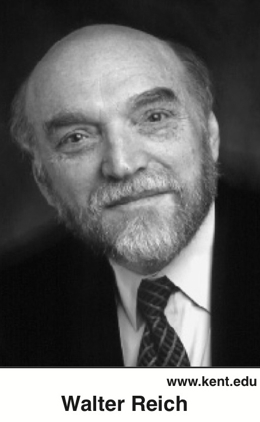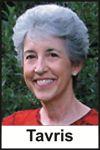Rascals case in brief
In the beginning, in 1989, more than 90 children at the Little Rascals Day Care Center in Edenton, North Carolina, accused a total of 20 adults with 429 instances of sexual abuse over a three-year period. It may have all begun with one parent’s complaint about punishment given her child.
Among the alleged perpetrators: the sheriff and mayor. But prosecutors would charge only Robin Byrum, Darlene Harris, Elizabeth “Betsy” Kelly, Robert “Bob” Kelly, Willard Scott Privott, Shelley Stone and Dawn Wilson – the Edenton 7.
Along with sodomy and beatings, allegations included a baby killed with a handgun, a child being hung upside down from a tree and being set on fire and countless other fantastic incidents involving spaceships, hot air balloons, pirate ships and trained sharks.
By the time prosecutors dropped the last charges in 1997, Little Rascals had become North Carolina’s longest and most costly criminal trial. Prosecutors kept defendants jailed in hopes at least one would turn against their supposed co-conspirators. Remarkably, none did. Another shameful record: Five defendants had to wait longer to face their accusers in court than anyone else in North Carolina history.
Between 1991 and 1997, Ofra Bikel produced three extraordinary episodes on the Little Rascals case for the PBS series “Frontline.” Although “Innocence Lost” did not deter prosecutors, it exposed their tactics and fostered nationwide skepticism and dismay.
With each passing year, the absurdity of the Little Rascals charges has become more obvious. But no admission of error has ever come from prosecutors, police, interviewers or parents. This site is devoted to the issues raised by this case.
On Facebook
Click for earlier Facebook posts archived on this site
Click to go to
Today’s random selection from the Little Rascals Day Care archives….
Click for earlier Facebook posts archived on this site
Click to go to
Today’s random selection from the Little Rascals Day Care archives….
Practicing therapy ‘on the basis of sheer myth’
Jan. 5, 2014
 “Probably the main reason for the growth of false charges of (sexual) abuse has been the recent proliferation of abuse specialists and therapists, many of whom lack any knowledge of mental illness or the workings of memory. These specialists believe fervently that many of the difficulties experienced by the people who consult them are due to sexual abuse that, if it isn’t remembered, can be jogged into memory by various recovery techniques.
“Probably the main reason for the growth of false charges of (sexual) abuse has been the recent proliferation of abuse specialists and therapists, many of whom lack any knowledge of mental illness or the workings of memory. These specialists believe fervently that many of the difficulties experienced by the people who consult them are due to sexual abuse that, if it isn’t remembered, can be jogged into memory by various recovery techniques.
“For decades, therapists of various kinds have put forward one unproved theory after another to explain personal unhappiness, dissatisfaction or serious psychological dysfunction. Earlier, as (Michael) Yapko points out (in “Suggestions of Abuse: True and False Memories of Childhood Sexual Trauma”), they focused on the ‘inner child,’ the ‘dysfunctional family’ or ‘co-dependency’; now it’s sexual abuse….
“In 1992, Mr. Yapko gathered data from more than 860 therapists across the country about the roles they think suggestion and memory play in therapy, especially in the dredging up of repressed memories of sexual abuse. ‘It is not an exaggeration,’ he concludes, ‘to say that many therapists appear to practice their profession on the basis of sheer myth….’ ”
– From “The Monster In the Mists” by Walter Reich in the New York Times (May 15, 1994)
How hard it was to say, ‘Boy, was I wrong’
 Aug. 10, 2012
Aug. 10, 2012
Carol Tavris:
“After the McMartin trial in 1986, I wrote an article for the Los Angeles Times about research that had been done on how to interview children in sex abuse cases. Evidence at the time suggested that sometimes you have to ask children leading questions or they will not tell you they have been molested.
“For example, if you interviewed a child after a genital examination and you asked her just to tell what the doctor did, almost no child would volunteer that the doctor touched her genitals. But if you asked a leading question, such as, ‘The doctor touched your private parts, didn’t he?’ the children would say ‘yes.’ The L.A. Times headlined this article, ‘Do Children Lie? Not About This.’
“Of course that was preposterous. Of course children lie ‘about this’ and lots of other things. But my essay, although based on research at the time, helped support the child advocates who were on a rampage against child molesters, and who were running around saying ‘children never lie’ and selling bumper stickers that said ‘Believe the Children.’’ I didn’t foresee that prosecutors and therapists would use these same studies to coerce the hell out of kids.
“When I think of my own embarrassment about that little article, and how hard it was to say, ‘Boy, was I wrong about that research,’ I realize how difficult it must be for all those ‘believe the children’ people to acknowledge they were wrong, too. In fact, most of them haven’t. They are more entrenched than ever in their pernicious beliefs.”
– From “The Measure of a Woman: An Interview with Social Scientist Carol Tavris”
in Skeptic magazine (Feb. 9, 2011)
Why prosecutors can’t admit they’re wrong
 March 5, 2012
March 5, 2012
“DURHAM — Tracey Cline could not admit she was wrong….”
Thus begins J. Andrew Curliss’s latest behavioral analysis of Durham County’s latest disgraced district attorney.
Coincidentally, Curliss cites a book I’ve been reading to better understand the rigidly wrongheaded behavior of the Little Rascals prosecutors.
“Carol Tavris, a Los Angeles social psychologist who has researched and written about the behavior and decision-making of prosecutors, said studies show the human brain, when sorting out conflicting beliefs and actions, will engage in a powerful act known as ‘self-justification.’
“It can keep people from admitting they are wrong and can be more powerful and more dangerous than an explicit lie, she said in an interview and in a 2007 book she co-authored, ‘Mistakes Were Made (But Not By Me)’…
“Self-justification is especially concerning in the justice system, Tavris said, because authorities often view themselves as ‘good guys’ doing the ‘right thing’….
“ ‘It’s really, really, really hard to face the reality that you screwed up,’ she said. ‘When we have a view of ourselves as good, competent, ethical, honest people and we are now confronted with evidence that we did something that was incompetent, unethical, immoral or harmful, we have two choices. We can ’fess up – say, “Oh, my God, look at this evidence, what did I do? How can I make amends?” – or, we deny.’ ”
Here’s a recent public ’fessing up that could be a model for errant prosecutors: “I want to express my sincere regret and apology…. It was a terrible mistake, and we knew it was wrong while we were doing it. Instead of getting caught up in it, I should have stopped it.”
Alas, it comes not from Cline – or from H. P. Williams Jr., Bill Hart or Nancy Lamb – but from the NFL coach who oversaw the “bounty” system for disabling opposing players.
UNC psychologist still thinks kids aren’t suggestible

Seck
Sept. 10, 2017
“With no conclusive DNA evidence, medical evidence of penetration or an eyewitness to the alleged assault, both prosecution and defense relied on expert witnesses to speak to the reliability of a young child’s testimony and whether it had been tainted by outside factors, such as how her mother had pressed her about whether she was touched… and how child advocacy center staff had interviewed her….
“ ‘Did [the 6-year-old girl] lie? I don’t know, and the problem is, neither does anyone else,’ [Marine Col. Daniel] Wilson’s civilian attorney Phil Stackhouse said in a closing argument…. Stackhouse pointed out that she had twice denied to her mother being touched by Wilson before she said he had.
“A government witness, Dr. Mark Everson, an expert on childhood trauma at the University of North Carolina, had testified that 6-year-olds are remarkably resilient to suggestion, or the planting of false memories….”
– From “Jury Deliberates Over Colonel Accused of Child Sex Assault” by Hope Hodge Seck at military.com (Sept. 9)
Yes, that’s the same Mark Everson who helped persuade a jury that Bob Kelly was guilty of 99 counts of child sexual abuse.
Everson, a UNC psychologist, disputed well-accepted research that children are suggestible and should not be repeatedly interrogated by therapists. Even 10 years later, he found it hard to believe that every Little Rascals child-witness had been badly interviewed and confused: “There’s so much smoke there, it’s hard to imagine there’s no fire.”
Update: A military court at Camp Lejeune found Col. Wilson guilty of child molestation.
![]()











0 CommentsComment on Facebook